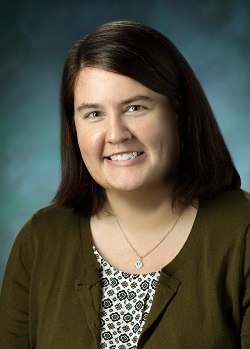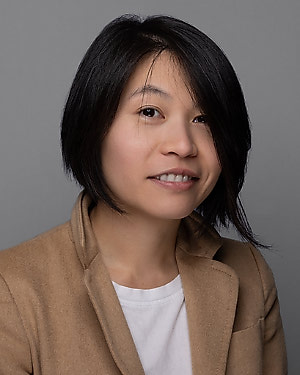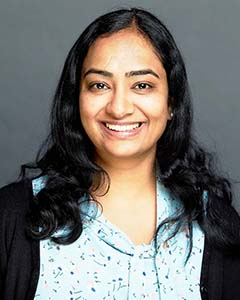About Us
Overview
Established in 1979, the Johns Hopkins Genomics DNA Diagnostic Laboratory is a CLIA and CAP certified; Maryland, New York, and Pennsylvania licensed clinical genetics testing laboratory specializing in rare inherited disorders. Led by renown professor of pediatrics and medical genetics Dr. Garry R. Cutting, the lab offers testing for a range of approximately 50 phenotypes and disorders totaling 3,500 tests annually.
Techniques include:
- Exome/Zoom
- Next Generation Sequencing (NGS; sequence and deletion/duplication analysis)
- Sanger sequencing
- PCR/fragment analysis
In addition to its core mission, the Johns Hopkins Genomics DNA Diagnostic Laboratory is also proud to serve as the Cystic Fibrosis Foundation’s Mutation Analysis Program (MAP) Laboratory.
The lab's website is intended for the use of health care providers and we are not able to consult directly with patients. Health care providers and patients may find some helpful resources on our Patient and Family Resources page.
Lab Information
-
- Phone
- Main: 410-955-0483
- Genetic Counselor: 443-927-3089
- Billing: 443-287-2486
- CFF Mutation Analysis Program: 410-614-2750
- Email
- General: [email protected]
- Billing: [email protected]
- Fax: 410-367-3266
- Postal Address (not for shipping samples):
Johns Hopkins Genomics - DNA Diagnostic Laboratory
1812 Ashland Ave, Room 200
Baltimore, MD 21205 - Phone
-
Monday-Friday 8:00AM to 4:30PM Eastern Time
Closed on weekends and Johns Hopkins University holidays
When the lab is closed, no personnel will be present to answer phone calls or accept specimen deliveries. Please plan specimen shipments accordingly.
University holidays (or observed holidays) include:
- New Year's Day
- Martin Luther King, Jr. Day
- Memorial Day
- Juneteenth
- Independence Day
- Labor Day
- Thanksgiving Day
- Day after Thanksgiving
- Winter Holiday 2023 (Monday, December 25 - Friday, December 29)
-
- Johns Hopkins Genomics Molecular Diagnostics Lab
- Department of Genetic Medicine Clinics
- Johns Hopkins Hospital Main Phone: 410-955-5000
Lab Staff
Garry R. Cutting, M.D.
Medical Laboratory Director, Professor of Genetic Medicine
Dr. Cutting earned his B.S. in Biology from the University of Connecticut and his M.D. from the University of Connecticut Medical School. He completed a fellowship in Pediatric Genetics at the Johns Hopkins University School of Medicine. His research is focused on the genetic and non-genetic causes of disease variation in cystic fibrosis (CF) and there are three major active projects in his research laboratory: CF Twin and Sibling Study, Genetic Heterogeneity in CF, CFTR2 Project.
The CF Twin and Sibling Study seeks to identify the major genetic and environmental factors that cause variation in the CF phenotype. Genome-wide linkage and association methods are employed to find loci and genes that modify quantitative traits (lung function, BMI) and qualitative complications (diabetes and meconium ileus) of CF. The Genetic Heterogeneity study is investigating families recruited by the laboratory that have 2 or more individuals where linkage excludes involvement of CFTR. Exome sequencing is being used to discover new genes that create a CF-like phenotype. CFTR2 is a worldwide project involving ~70,000 CF patients to clinical and functionally annotate all mutations in the CFTR gene.

Molly B. Sheridan, Ph.D.
Laboratory Director, Assistant Professor of Genetic Medicine
Dr. Sheridan earned a B.S. in Biology from The College of New Jersey and a Ph.D. in Cellular and Molecular Medicine from Johns Hopkins University. She completed a research post-doctoral fellowship in genetics at Children’s Hospital of Philadelphia in 2011. Dr. Sheridan returned to Johns Hopkins University in 2011 to complete a combined Clinical Cytogenetics and Clinical Molecular Genetics fellowship. She joined the McKusick-Nathans Institute of Genetic Medicine faculty in 2015. She is board-certified by the American Board of Medical Genetics and Genomics in Clinical Cytogenetics and Clinical Molecular Genetics.

Xiao P. Peng, M.D., Ph.D.
Clinical Advisor, Assistant Professor of Genetic Medicine
Xiao Peng, M.D., Ph.D., is currently Assistant Professor and Director of the Genetics of Blood and Immunity Clinic in the Johns Hopkins Department of Genetic Medicine. At Johns Hopkins, Dr. Peng also completed a combined residency in pediatrics and medical genetics, followed by a year as Genetics Chief Resident and research fellow supported by a National Institutes of Health T32 grant.
Dr. Peng’s clinical focus is on patients with suspected inborn errors of blood and immunity. She is co-author of multiple book chapters, several key reviews and scientific articles of the condition, and is a founding member of the Center for Immune-Related Disorders, a multi-disciplinary consortium of providers developed to help establish better resources for diagnosis and treatment of patients with suspected immune-related disorders.
Dr. Peng graduated in 2005 with a B.S. in chemistry with honors from Caltech and then worked as a research assistant, sponsored by the Howard Hughes Medical Institute, in the Cancer Genomics program at the Broad Institute of Harvard/MIT. During this time, she participated in many published basic science and translational medicine projects. At the Broad Institute, Dr. Peng also gained extensive experience in genomics and other cutting-edge technologies.
She graduated with an M.D., Ph.D. from the Weill Cornell/Rockefeller/Memorial Sloan-Kettering Tri-Institutional M.D.-Ph.D. Program in 2017, where she continued to pursue her interest in fundamental biological processes by studying the interface between DNA replication/repair, transcriptional regulation and post-translational protein modification pathways. She also published additional research in immunology and developmental gene regulation.
Since being at Johns Hopkins, she has adapted her basic science background into an innovative and mechanistic approach to the diagnosis and treatment of human disease. Her teaching and research interests in have synergistically converged with her passion for the care of patients with disorders of immunity and hematopoiesis. She continues to teach courses on immunity, genetics/genomics and their interface to trainees at many levels.

Sumathi Rachamadugu, M.Sc., M.S., C.G.C.
Genetic Counselor
Sumathi Rachamadugu M.Sc., M.S., C.G.C. earned a master's degree in biomedical genetics from Vellore Institute of Technology in India, followed by a master's degree in genetic counseling from the University of Utah. She has worked as a cytogenetic technologist in India and has several years of work experience as a clinical genetic counselor in the general genetics and adult cardiovascular clinics. Before joining Johns Hopkins Genomics, Sumathi worked at Intermountain Healthcare where she was team lead for the adult cardiovascular genetic counseling program, and served on various committees influencing genetic counseling, including a population study return of results committee.
Sumathi is passionate about genetics education for non-genetics medical providers, learning the art and science of variant classification, and implementing technology to automate and scale the genetic counseling workflow. She is board-certified by the American Board of Genetic Counseling and is an active member of the National Society of Genetic Counselors.

Sabrina Ingram, B.S.
Billing Coordinator
Sabrina’s role within the lab is to coordinate the billing. She is responsible for making sure the billing process is easy and simple for the referrers requesting testing. She also plays a role in the financial aspects of the JHGDDL, such as Budget Reports, Reimbursements and AP/AR. After relocating to Baltimore, Sabrina obtained a degree in Business Administration from Sojourner-Douglass College in Baltimore, Maryland. She has worked for Johns Hopkins University for more than 12 years and enjoys working with clients and the laboratory technical staff.

Certifications & Permits
- CLIA Certification: #21D0692357 (exp 08/7/2025)
- CAP Accreditation: #1353017 (exp 06/30/2025)
- MD State Permit: #557 Non-Expiring
- NY State Permit: #4253 (exp 06/30/2024)
- PA State Permit: #029028A (exp 08/15/2024)
Proficiency Testing: Participant in CAP Surveys, Inter- and Intra-laboratory comparison challenges.
